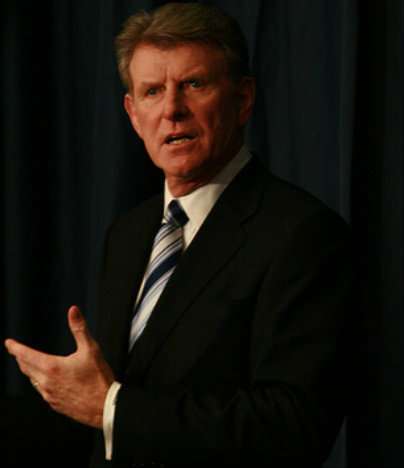Idaho's Obamacare Exchange Delayed, Feds to Take Over

Idaho's Republican governor, Butch Otter, was an early supporter of the state-led lawsuit against Obamacare that landed in the Supreme Court last summer. But after the lawsuit failed, and President Obama won a second term, Otter decided that he and his state would play along with the health care overhaul. Under heavy pressure from health industry lobbyists within the state, Otter declared last December that Idaho would build and run its own health insurance exchange under the law. In March, after months of resistance and heated debate, the state legislature eventually agreed to go along.
Was it even legal for the state to set up its own exchange? The state's Health Care Freedom Act, which prohibited state officials from passing or enforcing laws that imposed penalties or taxes on people for their health care choices, was a potential obstacle.
But Otter ignored it. He made a federalist case for wanting to build the exchange. "This is a state's rights issue," he said. "We are exercising our state sovereignty and maintaining as much decision making authority as possible." After all, he noted, the alternative was to have the federal government step in and build the exchange for the state.
Which, as it turns out, is what's going to happen. At least initially. The state announced today that it would delay the creation of its own exchange, according to the Associated Press. It hopes to have an exchange of its own up and running next year. But in the meantime, the federal government will handle it. The Idaho Spokesman-Review reports that state officials said they did not have enough time to get the exchange's security features up and running.
The state did, however, have time to hire a handful of employees to run the exchange—employees who were among the best compensated of any public employees in the state, with the exchange director out-earning Gov. Otter by about $58,000. The exchange also spent $200,000 on an outside public affairs firm to help with advertising and marketing.
It's fitting, in a way, that the feds will end up running the state's exchange, because that's who was funding it anyway. The state was given $20.3 million to get its exchange up and running, according to the Spokesman-Review, and has the option to apply for additional funding.


Show Comments (11)